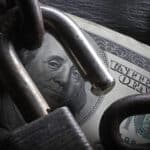Update: Safe Harbor Thresholds date extended to May 18, 2020 for PPP loan repayment.
In response to uncertainties surrounding the good faith certification requirement on Paycheck Protection Program (PPP) loans, the Small Business Administration (SBA), in consultation with the Department of the Treasury, has announced a determination of safe harbor for PPP borrowers.
“We were receiving a lot of inquiries about the thresholds for safe harbor and risks for audit,” says K·Coe Isom’s senior consultant Beth Swanson. “This is welcome news for businesses and related groups with total original loan amounts of less than $2 million, as there will be no reason for investigation and the SBA considers you to have adequate need for the loan.”
Summary of the SBA’s Safe Harbor Thresholds Guidance, and Takeaways for PPP borrowers
How will SBA review borrowers’ required good-faith certification concerning the necessity of their loan request?
Guidance:
- Any borrower who, together with their affiliates, received PPP loans with a combined original principal amount of less than $2M is deemed to have made the loan necessity certification in good faith – no further investigation required.
- Borrowers with loans greater than $2M may still meet the good-faith certification requirement based on individual circumstances. SBA will review all those certifications on a case-by-case basis.
- If SBA determines borrower lacked the adequate basis for certifying necessity of the loan, SBA will seek repayment of loan balance, and inform the lender that the borrower is not eligible for forgiveness.
- If borrower repays after receiving SBA notice, SBA will not pursue further enforcement or legal action. SBA does not provide a repayment timeframe.
- SBA’s determination regarding certification will not affect the loan guarantee.
Takeaways for borrowers:
- If you (together with related businesses) have a loan of less than $2M (when added together), there is nothing to do. SBA considers you to have had an adequate need for the loan.
- If you (including your related businesses) have a loan of greater than $2M, SBA will review your loans to determine if your individual circumstances rise to the level of “needing” the PPP loan.
- Document your financial circumstances (consider including this in corporate board or shareholder meeting minutes) that support the conclusion that the loan was necessary.
- If you feel you may not be able to justify the necessity of the loan, consider repaying the loan by May 14. If you choose not to repay, consider maintaining cash reserves in case SBA requires immediate repayment after an adverse ruling.
- If the SBA, upon review, determines that a borrower with a loan of greater than $2M did not certify in good faith that the loan was necessary:
- SBA will request repayment. If you repay, SBA will not pursue other enforcement or legal actions.
- SBA will still guarantee the loan.
Should you have any questions, contact a K·Coe advisor.










